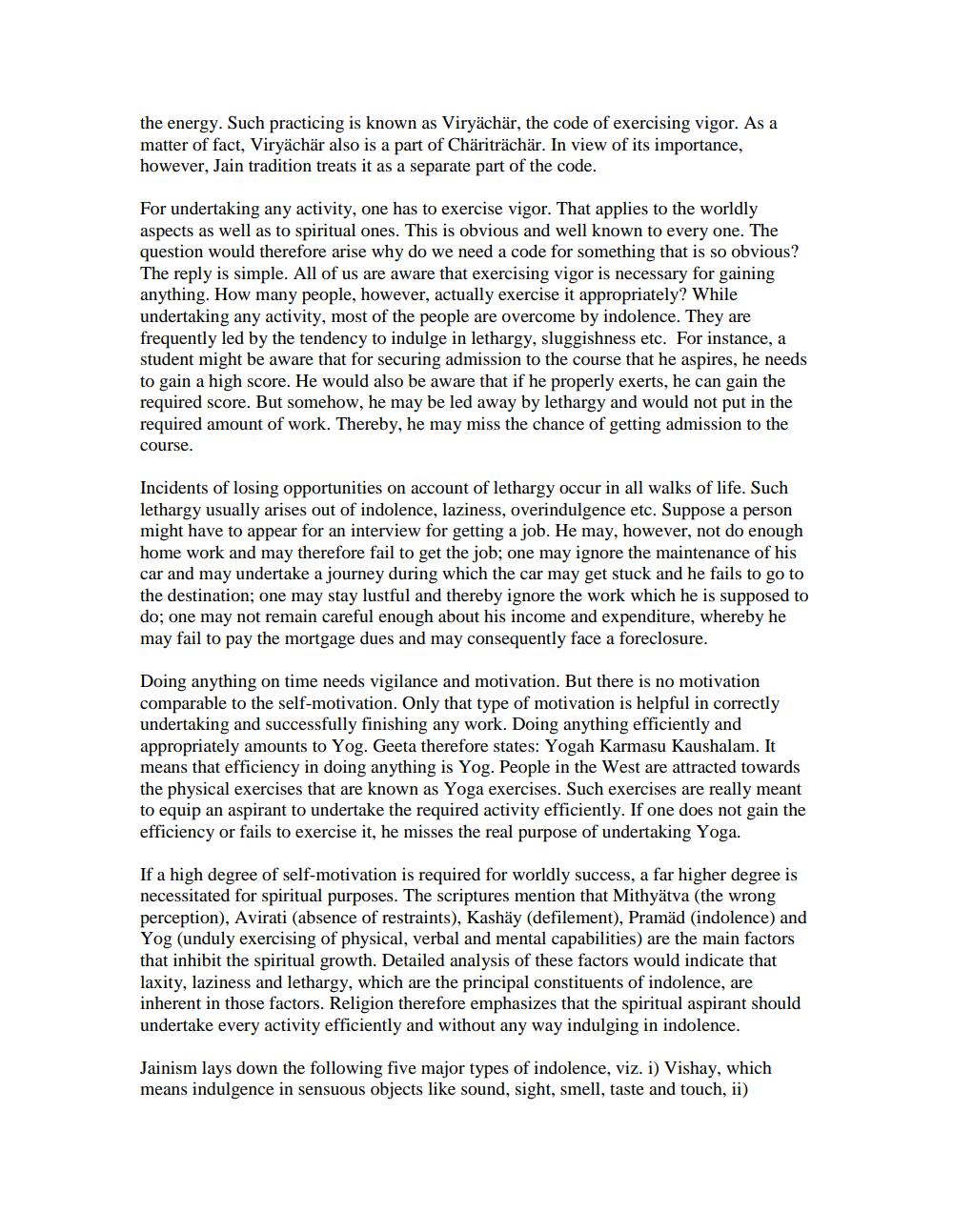________________
the energy. Such practicing is known as Viryachär, the code of exercising vigor. As a matter of fact, Viryachär also is a part of Chariträchär. In view of its importance, however, Jain tradition treats it as a separate part of the code.
For undertaking any activity, one has to exercise vigor. That applies to the worldly aspects as well as to spiritual ones. This is obvious and well known to every one. The question would therefore arise why do we need a code for something that is so obvious? The reply is simple. All of us are aware that exercising vigor is necessary for gaining anything. How many people, however, actually exercise it appropriately? While undertaking any activity, most of the people are overcome by indolence. They are frequently led by the tendency to indulge in lethargy, sluggishness etc. For instance, a student might be aware that for securing admission to the course that he aspires, he needs to gain a high score. He would also be aware that if he properly exerts, he can gain the required score. But somehow, he may be led away by lethargy and would not put in the required amount of work. Thereby, he may miss the chance of getting admission to the course.
Incidents of losing opportunities on account of lethargy occur in all walks of life. Such lethargy usually arises out of indolence, laziness, overindulgence etc. Suppose a person might have to appear for an interview for getting a job. He may, however, not do enough home work and may therefore fail to get the job; one may ignore the maintenance of his car and may undertake a journey during which the car may get stuck and he fails to go to the destination; one may stay lustful and thereby ignore the work which he is supposed to do; one may not remain careful enough about his income and expenditure, whereby he may fail to pay the mortgage dues and may consequently face a foreclosure.
Doing anything on time needs vigilance and motivation. But there is no motivation comparable to the self-motivation. Only that type of motivation is helpful in correctly undertaking and successfully finishing any work. Doing anything efficiently and appropriately amounts to Yog. Geeta therefore states: Yogah Karmasu Kaushalam. It means that efficiency in doing anything is Yog. People in the West are attracted towards the physical exercises that are known as Yoga exercises. Such exercises are really meant to equip an aspirant to undertake the required activity efficiently. If one does not gain the efficiency or fails to exercise it, he misses the real purpose of undertaking Yoga.
If a high degree of self-motivation is required for worldly success, a far higher degree is necessitated for spiritual purposes. The scriptures mention that Mithyätva (the wrong perception), Avirati (absence of restraints), Kashay (defilement), Pramäd (indolence) and Yog (unduly exercising of physical, verbal and mental capabilities) are the main factors that inhibit the spiritual growth. Detailed analysis of these factors would indicate that laxity, laziness and lethargy, which are the principal constituents of indolence, are inherent in those factors. Religion therefore emphasizes that the spiritual aspirant should undertake every activity efficiently and without any way indulging in indolence.
Jainism lays down the following five major types of indolence, viz. i) Vishay, which means indulgence in sensuous objects like sound, sight, smell, taste and touch, ii)




